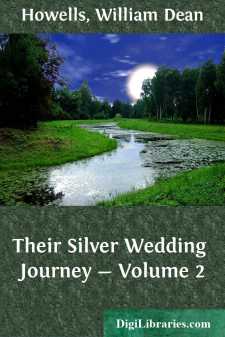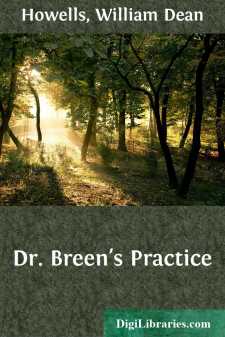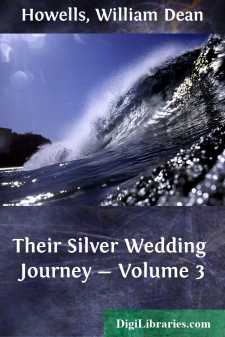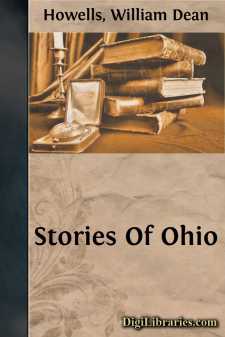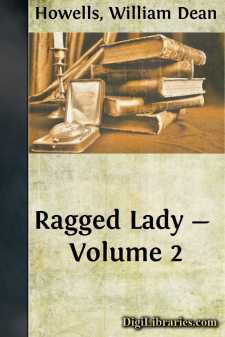Categories
- Antiques & Collectibles 13
- Architecture 36
- Art 48
- Bibles 22
- Biography & Autobiography 815
- Body, Mind & Spirit 144
- Business & Economics 28
- Children's Books 18
- Children's Fiction 14
- Computers 4
- Cooking 94
- Crafts & Hobbies 4
- Drama 346
- Education 58
- Family & Relationships 59
- Fiction 11833
- Games 19
- Gardening 17
- Health & Fitness 34
- History 1378
- House & Home 1
- Humor 147
- Juvenile Fiction 1873
- Juvenile Nonfiction 202
- Language Arts & Disciplines 89
- Law 16
- Literary Collections 686
- Literary Criticism 179
- Mathematics 13
- Medical 41
- Music 40
- Nature 179
- Non-Classifiable 1768
- Performing Arts 7
- Periodicals 1453
- Philosophy 65
- Photography 2
- Poetry 896
- Political Science 203
- Psychology 44
- Reference 154
- Religion 515
- Science 126
- Self-Help 85
- Social Science 82
- Sports & Recreation 34
- Study Aids 3
- Technology & Engineering 59
- Transportation 23
- Travel 463
- True Crime 29
William Dean Howells
William Dean Howells was an influential American realist author and literary critic, often referred to as the "Dean of American Letters." He was known for his novels depicting middle-class life, such as "The Rise of Silas Lapham" and for his advocacy of realism in literature. Howells also served as editor of "The Atlantic Monthly," where he championed contemporary writers like Mark Twain and Henry James.
Author's Books:
Sort by:
MR. AND MRS. EDWARD ROBERTS; THE CHOREWOMAN Mrs. Roberts, with many proofs of an afternoon's shopping in her hands and arms, appears at the door of the ladies' room, opening from the public hall, and studies the interior with a searching gaze, which develops a few suburban shoppers scattered over the settees, with their bags and packages, and two or three old ladies in the rocking-chairs. The...
more...
They found Burnamy expecting them at the station in Carlsbad, and she scolded him like a mother for taking the trouble to meet them, while she kept back for the present any sign of knowing that he had staid over a day with the Triscoes in Leipsic. He was as affectionately glad to see her and her husband as she could have wished, but she would have liked it better if he had owned up at once about...
more...
Near the verge of a bold promontory stands the hotel, and looks southeastward over a sweep of sea unbroken to the horizon. Behind it stretches the vast forest, which after two hundred years has resumed the sterile coast wrested from it by the first Pilgrims, and has begun to efface the evidences of the inroad made in recent years by the bold speculator for whom Jocelyn's is named. The young...
more...
At the first station where the train stopped, a young German bowed himself into the compartment with the Marches, and so visibly resisted an impulse to smoke that March begged him to light his cigarette. In the talk which this friendly overture led to between them he explained that he was a railway architect, employed by the government on that line of road, and was travelling officially. March spoke of...
more...
I. It was an afternoon of the brilliancy known only to an afternoon of the American summer, and the water of the swift Piscataqua River glittered in the sun with a really incomparable brilliancy. But nothing could light up the great monster of a ship, painted the dismal lead-color which our White Squadrons put on with the outbreak of the war, and she lay sullen in the stream with a look of ponderous...
more...
In those dim recesses of the consciousness where things have their beginning, if ever things have a beginning, I suppose the origin of this novel may be traced to a fact of a fortnight's sojourn on the western shore of lake Champlain in the summer of 1891. Across the water in the State of Vermont I had constantly before my eyes a majestic mountain form which the earlier French pioneers had named...
more...
CHAPTER I. VENICE IN VENICE. One night at the little theatre in Padua, the ticket-seller gave us the stage-box (of which he made a great merit), and so we saw the play and the byplay. The prompter, as noted from our point of view, bore a chief part in the drama (as indeed the prompter always does in the Italian theatre), and the scene-shifters appeared as prominent characters. We could not help seeing...
more...
I. AUTOBIOGRAPHICAL APPROACHESI.As the train took its time and ours in mounting the uplands toward Granada on the soft, but not too soft, evening of November 6, 1911, the air that came to me through the open window breathed as if from an autumnal night of the middle eighteen-fifties in a little village of northeastern Ohio. I was now going to see, for the first time, the city where so great a part of...
more...
I. THE ICE FOLK AND THE EARTH FOLK. The first Ohio stories are part of the common story of the wonderful Ice Age, when a frozen deluge pushed down from the north, and covered a vast part of the earth's surface with slowly moving glaciers. The traces that this age left in Ohio are much the same as it left elsewhere, and the signs that there were people here ten thousand years ago, when the glaciers...
more...
Mrs. Lander went to a hotel in New York where she had been in the habit of staying with her husband, on their way South or North. The clerk knew her, and shook hands with her across the register, and said she could have her old rooms if she wanted them; the bell-boy who took up their hand-baggage recalled himself to her; the elevator-boy welcomed her with a smile of remembrance. Since she was already...
more...



